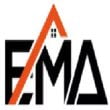40-Year Recertification Inspections
40-Year Recertification Inspections
40-Year Recertification Inspections in Florida
Certified Structural & Electrical Assessments for Safety and Compliance
What Is a 40-Year Recertification Inspections?
The 40-Year Recertification Inspections Program is a mandatory evaluation required in many Florida counties (including Miami-Dade and Broward) for buildings 40 years or older and every 10 years thereafter. It ensures your building remains structurally sound and electrically safe, helping protect residents and meet legal compliance.
✅ Required By Law
✅ Prevents Costly Repairs
✅ Ensures Occupant Safety
Who Needs a 40-Year Recertification Inspections?
Condominiums & HOAs
Commercial Buildings
Apartments (3+ stories)
Hotels, Warehouses, Industrial Facilities
Buildings over 2,000 sq. ft. and constructed before 1985 are typically subject to this inspection requirement.
Our 40-Year Recertification Inspections Process
At EMA Engineers, our licensed engineers provide end-to-end service that ensures full compliance with local county mandates.
✔️ Step 1: Structural Inspection
Performed by a licensed professional engineer, we assess:
Foundation & load-bearing walls
Columns, balconies, slabs
Roof integrity & framing systems
✔️ Step 2: Electrical Inspection
Completed by a licensed electrical engineer, we inspect:
Main panels & circuit breakers
Emergency lighting systems
Wiring, grounding & bonding
Fire alarms & backup power systems
You’ll receive a comprehensive report with all findings and recommendations.
Why Choose Us for 40-Year Inspections?
🏆 Certified Engineers in Florida
⚡ Fast Turnaround & Reports within days
📍 Local Knowledge of municipal codes
💬 Clear Communication with HOAs & Property Managers
🔒 Fully Insured & Compliant
We’ve successfully inspected many buildings across Miami, Fort Lauderdale, and Palm Beach.
Service Areas
We proudly serve all major Florida metro areas:
📍 Miami-Dade County
📍 Broward County
📍 Palm Beach County
📍 Hillsborough (Tampa)
📍 Orange County (Orlando)
📍 Lee & Collier (Naples, Fort Myers)
Frequently Asked Questions (FAQs)
Is a 40-year inspection mandatory?
Yes. It is required by local building departments to ensure safety and prevent potential collapses or hazards.
What happens if I don’t comply?
Non-compliance may lead to fines, occupancy restrictions, or forced evacuation orders.
Can you handle the 10-year follow-up inspections (50-year)?
Absolutely. We track your compliance schedule and offer seamless follow-up evaluations.
Schedule Your 40-Year Recertification Inspections Today
Don’t wait until code violations or fines occur. Let our certified experts guide you through the inspection, reporting, and compliance process smoothly.
👉 Request a Quote Now or call us at (321) 355-6052
Helpful Links
Miami-Dade 40-Year Inspection Program
Broward County 40-Year Program
What Is a Milestone Inspection?
Internal Linking Suggestions:
Link to Milestone Inspections page
40 Year Inspections
40-Year Recertification Inspections Palm Beach Program is a fancy way of saying your building needs to get a commercial property condition assessment when it is 40-50 years old. This program has been in effect for more than a decade, and applies to any commercial buildings, including schools, in Broward and Miami-Dade county. Property managers or business owners must consult with structural engineers to have a proper inspection completed at 50 years and then once every 10 years afterward. These inspections are designed to keep people safer from possible building failure during extreme weather conditions and other scenarios.
Purpose of the 40 Year Structural Inspections
The main purpose of the 40-year recertification inspections Palm Beach program is to ensure the building is safe from a structural and electrical standpoint. Many structural engineers spend the majority of their time conducting inspections on older buildings, and they are required to prepare a report of their findings. Buildings older than 50 Year Structural Inspections Palm Beach old may not be strong enough to withstand hurricane-force winds and other weather phenomenon’s, so the purpose of the inspection program is to ensure the building is as safe as possible to prevent injury or death.


Timeline for the Inspection
When it comes time for a 40-year recertification Inspections in Broward and Miami-Dade county, the property owner will receive a notice that an inspection is due. At that point, the property owner will have 90 days to find a structural engineer to complete an inspection of the building and submit a report to either the city or the county. The report will indicate what parts of the building (if any) need to be repaired or replaced. The property owner will have another 180 days to complete the necessary repair work. The structural engineer will then prepare another report following the complete repairs.
It’s important to find only the best Broward and Miami-Dade county structural engineers to engineers to complete your 40 Year Building Safety Inspection. Be sure to contact us to get in touch with one of our experienced professionals to help you complete your inspection.
25, 30, 40 Year Structural Certification Inspections Fort Lauderdale
In some cases, the client will request the engineer or architect to provide the names of the other engineers or architects to perform the 40-year inspection or the terms of the contractors who will perform the repairs. In such cases, when the professional refers to the names of other professionals or contractors to perform the inspection or the repairs, the client must agree and understand that any names referrals should be checked or qualified by the client and including references. This will avoid the “Blame Game” if the referred party does not perform what was agreed upon, even delay in submitting a proposal or a bid. In some cases, clients may construe that by referring names by the professional, the professional is responsible for the conduct of the referred party and will blame the referee for mishaps. This in no way will be the fault of the professional who provided the names of other professionals. Therefore, the client will be the only party responsible for qualifying the referred party to perform the requested services, not the person who made the recommendation. In a few cases, the client even accused the professional who provided the referrals for the negligent conduct of the parties the client hired, even though the engineer did not have any control over the behavior, action, or inaction of the referred party. Some architects and engineers want to help the client by selecting other entities, but also beware of the consequences if problems occur. The client will more than likely blame the A/E firm that recommended the referred party since the client, in their mind, will conclude that if the referral was not credible, why did the A/E make the referral in the first place?; thus, there is a liability in making the referral such that it saved the client time and provided a benefit to the client but at no benefit to the referee; thus, it is consequences depending on the performance of the third party. Therefore, the client is responsible for finding contractors and other professionals to perform the 40-year certification.
